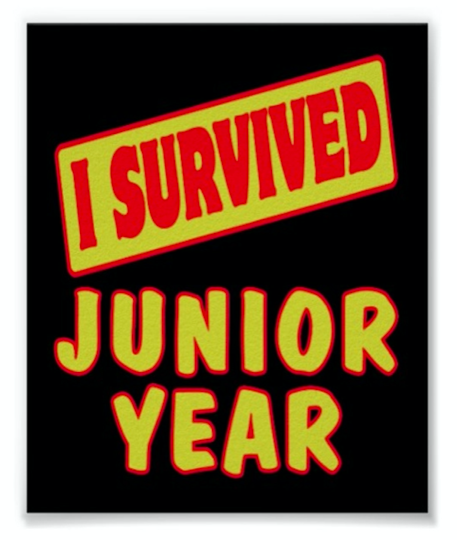Reflections on Junior Year

Junior year is known to be the hardest year of high school. I remember well when my older cousin, now a young mother of two and a working professional, attended Ramaz Upper School, commuting from Long Island. Junior year was so stressful for her that she rarely took the time to travel home. Instead, she spent most nights at our apartment, studying in her room in her home away from home. She walked around with a sense of exhaustion and purpose, always planning her next activity. My father jokingly coined junior year “the easy year” and would ask her nightly, “How is the easy year going?” For some reason, she never laughed. From watching my cousin, my sisters and I developed a true fear of the notorious “easy year.”
Needless to say, I entered this year with great trepidation. And I was not alone. Most of my peers admitted that the stress of junior year is a notch higher than the two years prior. The looming standardized testing on top of an even-heavier academic workload definitely adds to the year’s stress factor. In addition, many people focus on additional extracurricular activities, looking to boost their resumes for looming college applications. Interestingly, for me, knowing that junior year is supposed to be hard helped me get through it. The reputation that the year carries allowed me to approach it with a calmer attitude. Anytime I felt overloaded or overworked, I told myself, “it’s normal—it’s junior year!” There is solace in knowing that one is not alone, and if I am finding the workload heavy, so are many other people, not just at Ramaz, but at high schools around the country.
Nonetheless, I must admit that junior year does carry a lot of weight and can be rather stressful for most students. While Ramaz does take pride in its rigor, there are certain elements of the year that could be adjusted to help ease the pain. First, there’s the test calendar. The test calendar should be made with the SAT and ACT in mind. While I know this is easier said than done, I have witnessed the conflicts between standardized testing dates and course testing for many years, as my cousins and siblings all complained of the same problem. Many juniors struggle when standardized test dates are right before demanding exams. For example, the ACT being on Sunday and having a history test on Monday. Every time there was a standardized test this year (approximately monthly), students complained to the class presidents and administration to adjust the exam schedule. Often these discussions went on for many weeks before the exam date was finally changed. The test calendar caused a lot of disagreement and stress in group chats and a lot of pressure on the class presidents. It would be a wonderful gift to juniors if, from the start, the week after a standardized test did not have any exams. Or at least, if Monday–Wednesday after the standardized exam, no tests were administered. Since the standardized test schedule is printed at the start of the year, and the exams fall out at repeated, standard times of the month, taking the standardized test calendar into account when making the Ramaz calendar is feasible.
Another factor that can be easily adjusted to help ease the responsibilities of junior year is the Talmud research paper. This paper is a new addition to the third year at Ramaz. Since the year already heralds demanding coursework, a history term paper, and multiple iterations standardized testing, perhaps the new Talmud paper can be assigned in the sophomore year. I do understand the importance of the paper and enjoyed writing it, but I think given the load of junior year, students would appreciate this paper more as sophomores.
Lest one think that junior year is not enjoyable, I must admit that it has actually been really fun. While the workload is certainly heavy and the stress mounting, the actual school days have been great. There are many perks to being a Ramaz junior. I love my classes, my friends, and the overall feeling of being a Ramaz student, especially an upperclassman. It is nice to be among the older students in the school, and junior privileges definitely add to the day. Being able to go out for lunch or even just get a coffee in the middle of the day is liberating. The longer retreat that is given to juniors is another bonus. It’s nice to see teachers from past years in the hallway and have a familiarity with the school and the student body. Overall, there is a sense of warmth and belonging. All in all, I would say that junior year has been a positive one, but there are definitely some ways to make “the easy year” a bit easier.

Caitlin Levine loves journalism, is an avid writer, and is thrilled to be an editor-in-chief of The Rampage. Caitlin has actively contributed to The Rampage...


